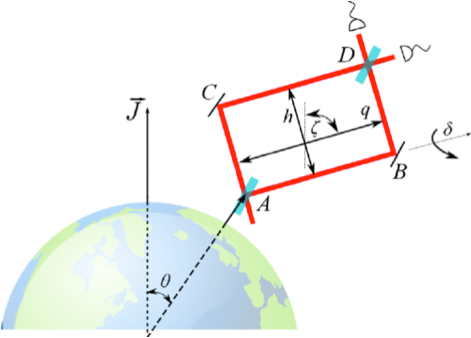Research in the field of Relativistic Quantum Information (RQI) brings together the two pillars of modern physics: quantum theory and general relativity. RQI research is yielding results ranging from new insights into the laws of nature to concrete applications in quantum computing and quantum communications.
Postdoctoral fellow Aharon Brodutch at the Institute for Quantum Computing (IQC) investigates an area of RQI that involves the interaction between weak gravity (such as that of the earth) and photons. Recently, Brodutch collaborated with colleagues from the University of Waterloo and Macquarie University, Australia, to determine the set-up of a satellite experiment that detects gravitational effects on the quantum degrees of freedom of a photon.
The researchers considered a theoretical interferometer in space to find the measurement precision needed to detect the effect of gravity on a photon traveling along a beam of light. Using one satellite and two different paths of light rays going to the satellite using time delays, they found that in terms of polarization the gravitational effect is too small to be measured with an interferometer.

“The next step will be tackling more realistic problems, like atmosphere and stabilizing the pathways of the interferometer,” says Brodutch. “This is the most optimistic result in terms of experimental feasibility.”
Post-Newtonian gravitational effects in optical interferometry, the third paper in this series, appeared in Physical Review D in March.
Also in March, a second paper by Brodutch appeared; this time in Physical Review Letters. Brodutch provided a modified calculation in a published comment on How the Result of a Single Coin Toss Can Turn Out to be 100 Heads.